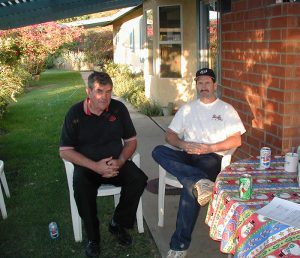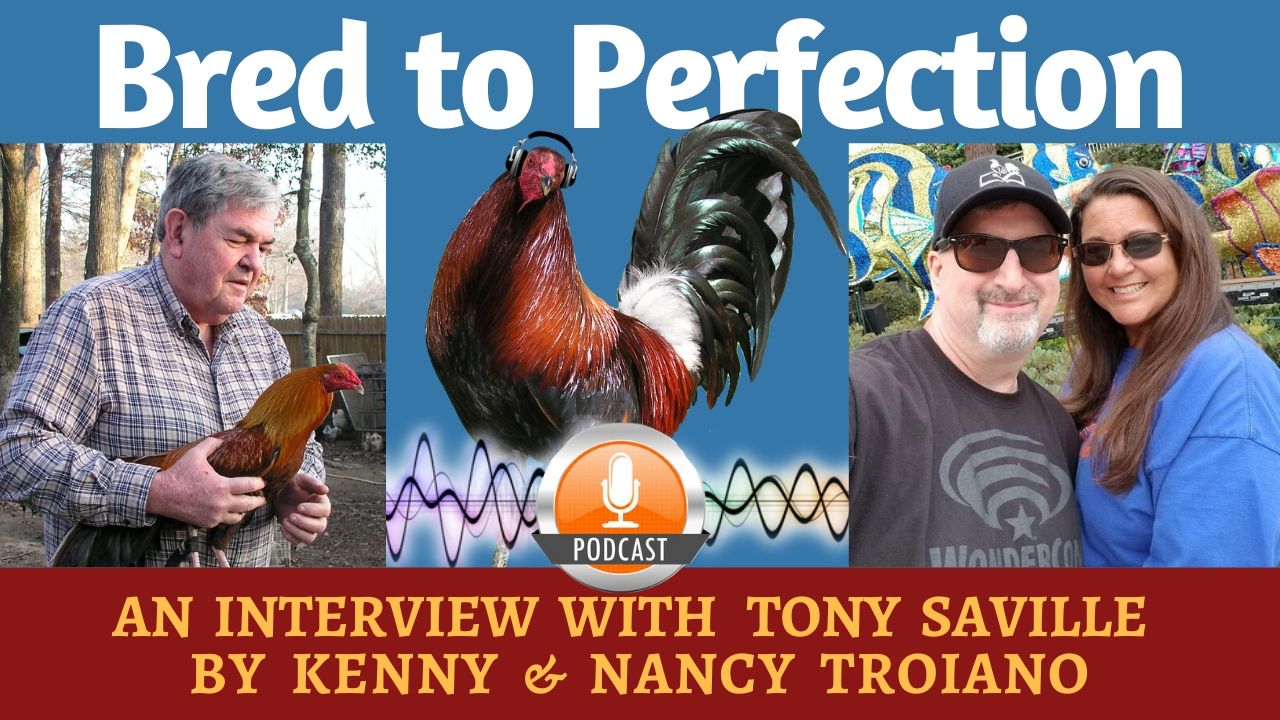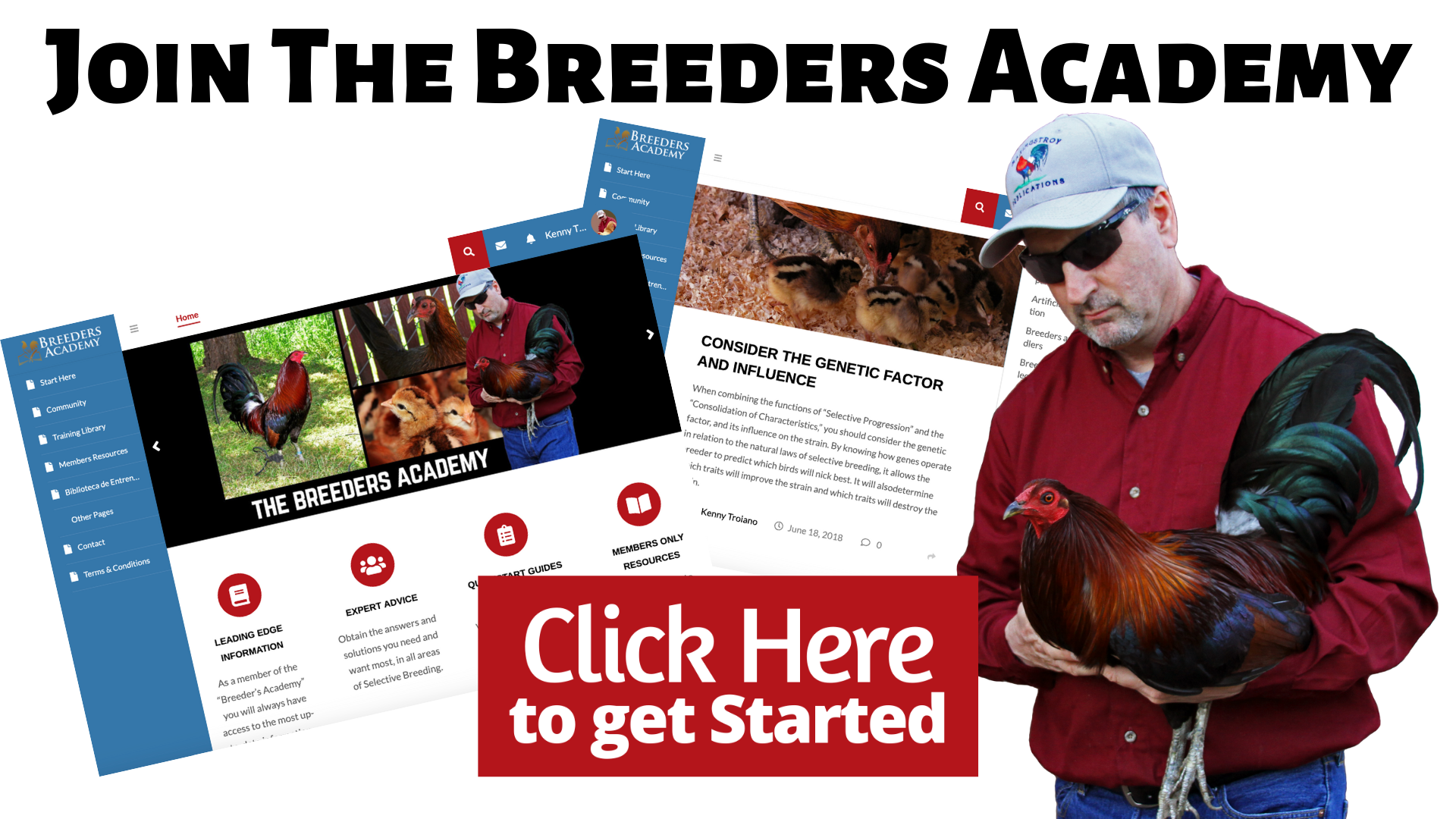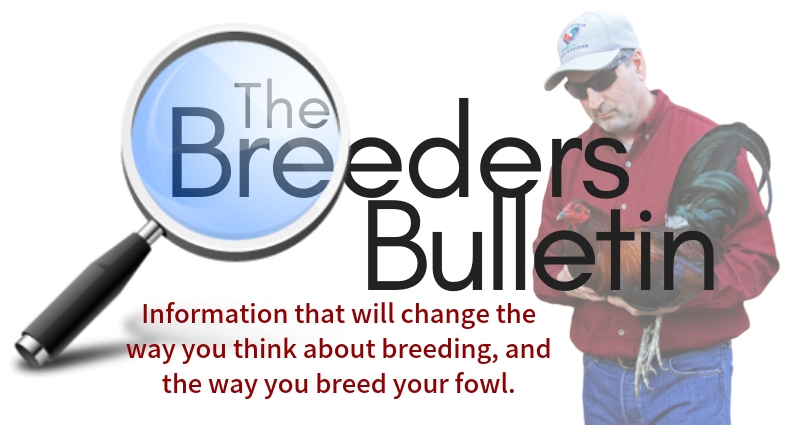50th Anniversary Episode
Welcome to another episode of “Bred to Perfection.” This is our 50th Episode of Bred to Perfection. We’ve had a great time doing the show, and yes we’ve reached the big “5-0.” We want to thank all our listeners for all your support, and for listening to the show. WE DO IT FOR YOU!
It is our goal to reach another 50, and beyond. And, with your help, I know we can do it. We hope you are enjoying listening to the show, as much as we are having doing the show. We also hope you are getting a lot of useful and valuable information from the show.
We have many plans for the show, such as, interesting interviews, instructional tutorials, and fun zones. Not to mention, all the coaching calls we’ve done and can’t wait to share.
We thought long and hard about our 50th episode and how we were going to celebrate it. It’s a milestone that must be recognized. We thought about doing a fun zone – share our funniest moments. We almost did a Breeders Roundtable, with me, Don Schrider and Danny Feathers, and have Nancy be the host and moderator. I even had listeners of the show send in questions, and we got a lot of great questions. But we had some difficulty lining up our schedules. But not to worry, we’re still going to do it, just not sure when. Hopefully soon.
Then we thought, what better way to do this than to have my mentor on the show, Tony Saville. I’m always talking about him on the show, and sharing what I learned from him through the years.
Well, I have a very special treat for you. Today, we are talking with Tony. The man who has had a great influence on me, my thinking, and the way I select my brood fowl.

CHICKEN CHAT With Tony Saville and Kenny Troiano
Before we get started, let me say this – I’ve had a number of mentors throughout my life, but none that affected me as much as Tony. Some of you may know him as Anthony, but he will always be Tony to me. Tony and his wife Francis are not only my very good friends, to me and my family, they are family to us.
They are originally from South Africa, but lucky for me, they lived just down the street. I would visit with them often. I would help Tony in the yard, feed and care for chickens, and the three of us would spend countless hours, sitting on his back porch talking about chickens.
I was incredibly lucky, because Tony is a certified judge for the “Oxford Old English Gamefowl Club,” and the “South African Poultry Association.” I learned a lot from Tony through the years. He opened my eyes to the importance of form, function and beauty, and showed me the importance of conformation of body and color of plumage. As well as the history of the breed. This led to an incredible knowledge of selection.
I was always grateful for the time he would spend with me. We would have great conversations about breeding and selection, the standard, talking about the proper conformation of body, and color of plumage of American Games, as well as many other great subjects. Many times, the conversations were so informative, that I had wished I would have recorded them.
Well, I’m happy to tell you that, although I wasn’t able to record those talks, we are talking with Tony today. I call this interview “Chicken Chat with Tony Saville.” I know you will find this very interesting and informative.
We’re going to use “American Games: as a point of reference, but most of these principles and practices can be used for all breeds of chickens. There is something to learn for everyone.
Before we get started with the interview, it’s important that we mention, here on “Bred to Perfection podcast,” that we teach and encourage what it takes to create and improve pure strains.
However, in this episode, we do reference the sport of cockfighting. This is done as a historical reference that helps show the function and purpose of the American Gamefowl breed.
We do not support or endorse the sport of cockfighting. We do, however, believe that the American Gamefowl is an amazing breed, and may indeed prove valuable for the survival of all chickens.
Show Topics:
The Origin of American Gamefowl History: a little about the American Games, their amazing history, and their preservation. Influence of various bloodlines and breeds, such as:
- Old english
- Irish
- Spanish
- Aseel
- french
Getting started:
- Finding and buying your foundation strain
- Deciding on a breed and variety
- Making sure they have the characters and traits you desire most.
Selection of a strain: Important to start with good brood fowl:
- The importance of finding and buying your fowl from a reputable breeder
- How to recognize a great breeder (20 to 30 years of experience)
- Are their fowl uniform? Must have good uniformity
- If they know their fowl, they can help you select the right fowl for you
- Must be healthy and vigorous
The importance of keeping only one or two strains, and not trying to breed and maintain multiple strains.
How to provide a proper environment for your new fowl: by making sure you have:
- Proper Brood Pens
- A good feeding program,
- and a proper farm set up before buying your fowl.
LET’S TALK ABOUT THE SELECTION OF YOUR BROOD FOWL:
Why is “Conformation of Body” so important? Structure of the breed?
- Type: The Structure and conformation of body.
- Form and function: how their form dictates their function, and without the right form they are not good representatives of their breed.
- Every part of the body has a direct effect on the whole
Why should we care about the Color of Plumage?
Mixing colors to create another color:
- Pyles
- Golden duckwings
- Furness
Color groups: (unexperienced breeders tend to mix these), such as:
- Crow wings
- Duck wings
- Self colors:
- Blues
- Whites
- Black
Tony’s signature breeds – Yellow Birchens and Silver Birchen Strain:
- He accomplished this through his knowledge of the breed, persistence, and a lot of patience. And today they are the best representatives of their breed and variety throughout the world.
- American Game Bantams – they are true representatives of the large fowl. Not usually the case – look at the Old English Game Bantams
Before we get into selection, let’s talk about the dangers of changing the breed. If you look at the pictures of “American Games” on Facebook you can see a heavy influence of “Aseel blood.” I’m worried that the American Gamefowl breed is changing, and going in a very dangerous direction. It reminds me of what you told me about the “Old English Games,” which led to the creation of the “Modern Games.”
Points of discussion:
- Cockfighting outlawed in England (1849)
- Cockfighters going underground
- Showman and exhibitors selecting for traits they didn’t understand – they didn’t understand the Old English Games, which led to the creation of the Modern Games
- Saving the old English Games – Herbert Atkinson saved the breed by bringing back the true Old English Games into the show ring.
Dangers of the Show:
- How poultry exhibitionists of the time almost destroyed the Old English Games, forever! (with modern games)
- Why is it important that one judge should not be allowed to judge the same show all the time?
Why are shows important for American Games?
The Power of Selection:
The Importance of “Uniformity”
The importance of “Selection”
- how to select?
- what to select for?
Understanding the breeder’s “power and ability” to select, which can determine the overall “form, function and beauty” of his strain.
Selecting for proper “Form, function and beauty” (the complete package)
- Conformation of body (form and structure)
- Color of plumage (beauty)
- Performance ability (function and purpose)
- Making sure the cocks and hen, which are selected for breeding, are a good match.
Characteristics and Traits that are important:
- The importance of observing the behaviour of your birds
- Sitting and checking out your birds.
- Head – which includes the:
- Beak
- Eyes
- Neck – the importance of a long neck. (long and strong)
- Body – and why it’s the most important part of the bird:
- Back – broad, flat and tapering nicely to the tail – why is this so important?
- Breast
- Keel
- Legs – importance of angulation and station.
- Toes – importance of duck toe?
- Spurs – strong and low
- Wings – carrying of the wings?
- Relationship between the wings and thighs
- Tail – the rudder of the bird
- Weight and overall condition of the bird, and understanding the term “corky”
- Plumage condition and color:
- How to create new colors of plumage?
- Black breasted reds are the foundation of all fowl?
- Can they fix most other colors?
- Intelligence, the importance of selecting smart birds.
- Temperament:
- the importance of selecting breeders that are calm and even tempered,
- why it’s important to eliminate all flighty hens and man-fighting cocks.
Which traits should we not judge too early?
Why are defects so detrimental? Selecting brood fowl that are free of defects.
- Stork legged
- Knocked Knees
- Bow leggedness
- Duck toe
- Squirrel tail
- Wry tail
- Split wing
- And more!
Most defects are genetic, but there are some that can be either genetic or from disease.
- Sunken eyes
- Wry tail – gumboro disease
- Daw eye – infectious loucosis
Culling: The importance of culling and eliminating defects. One of the things I learned from you early on, is the importance of culling, and culling ruthlessly.
- As breeders – do we cull hard enough?
- Why you should cull ruthlessly!
- How can you improve a strain by culling?
What to cull for?
- Defective birds – eliminate all defects
- Substandard birds
- Birds that don’t represent their breed
- Wrong color
- Birds that don’t represent their breed and variety
- Sick
- Weak birds
- How the “Old time breeders who would feed, and come back with a chicken in the bucket” – forcing themselves to cull!
The health of your strain:
- The use and misuse of medications and vaccinations
- Breeding for resistance
- Culling the sick
- The effects of disease on your strains
- How you can improve their health through selection
- How improving your strains disease resistance through selection
- Don’t play doctor.
- Never treat diseases
- Never breed from chickens that have been sick in the past.
Rules of breeding for “Diseases Resistance”
- Don’t treat sick birds, “What wants to die, let them die”
- Don’t use medications or vaccinations
- Cull ruthlessly:
- Nature will cull the weak
- Cull like nature would cull
- Only breed to the healthy and vigorous
Breeding: and the importance of using a proper breeding program.
Purity of Blood – The importance of purity of blood and the power of predictability.
What breeding methods do you prefer?
The dangers of crossbreeding and the effects of hybrid vigor.
The importance of patience and perseverance. Progress can be very slow, but if persistent, improvement is certain.
Blanket effect – should we breed a cock that is strong where the hen is weak? Or breed best to the best?
What do you think about the “Name Game?”
- Too many are using names of strains that don’t exist anymore?
- Peddlers trick?
- Mean nothing these days?
What are the most common mistakes you see breeders making today? Especially when it comes to breeding and selection
We hope you enjoyed the conversation with Tony Saville. And, I would like to thank Tony for coming on the show and sharing his knowledge and experience with us. It reminded me, in many ways, the time we spent talking chickens on his porch. Now you know why Tony Saville is one of the greatest teachers of Old English and American Games we have today.
Years ago, I was doing an article, which was called “Mother Nature and the Natural Order of Selection?” I was talking with Tony about this subject, and collecting information that would be used for the article. I had forgotten that we taped that conversation. The other day, I ran into this recording.
Topics included: Natural selection – survival in the wild
- Their natural ability to survive in the wild
- Retainment of their natural instincts
- Would they live in the trees or on the ground?
- cackling hen and protecting her nest
- Culling by predators – any physical limitations that a bird may have
Well, good news, I talked to Tony, and he has given me permission to use this recording in a future show. The best part of this is the fact that we did this recording on his porch. You will get to hear one of those chicken chats we use to have that I talk so much about. I will let you know when we publish that show. I encourage you to listen to it multiple times as well.


